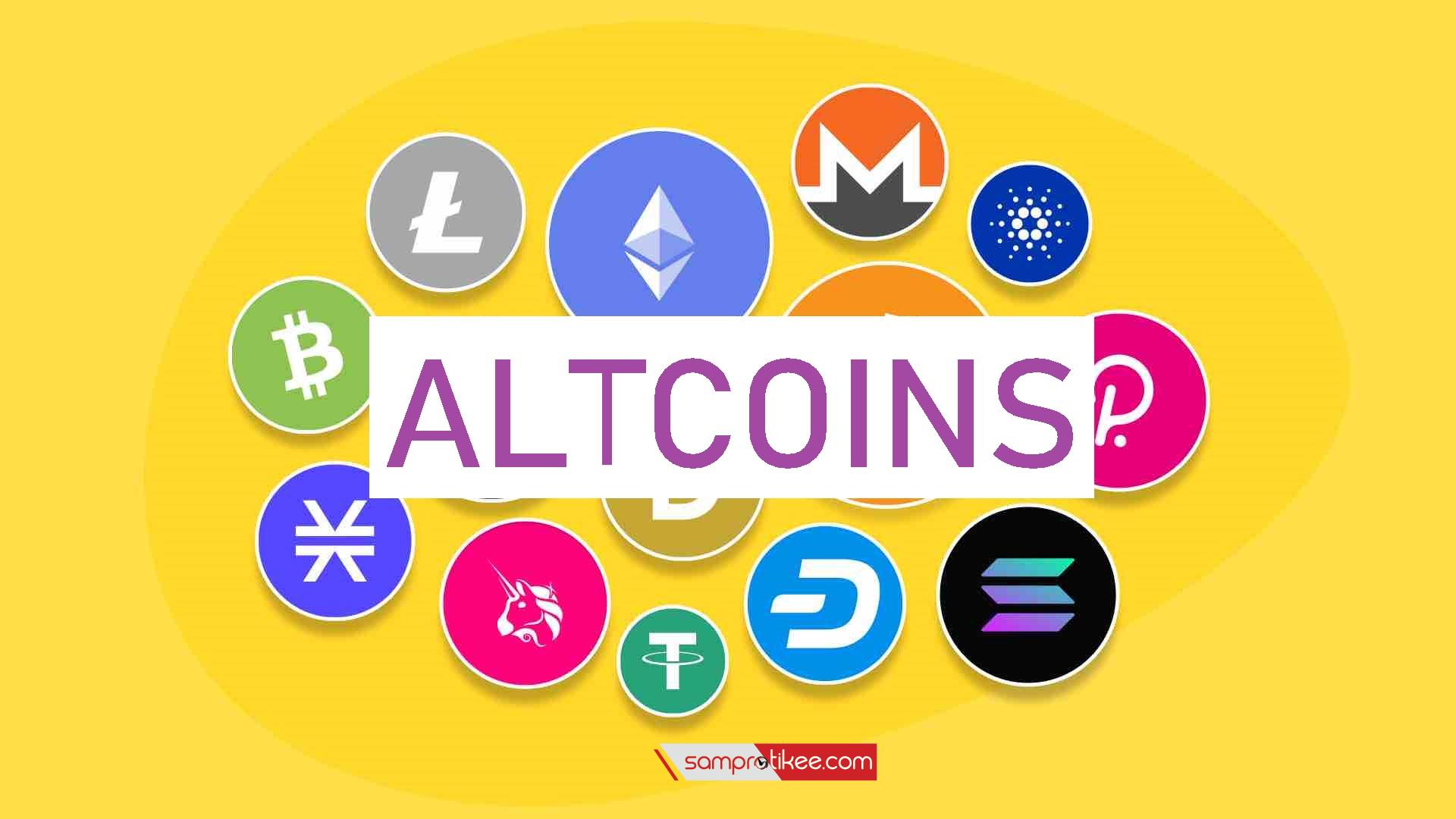Everything You Need to Know About Altcoins
A cryptocurrency, or virtual currency, that is not Bitcoin is known as an altcoin. Each altcoin follows its own set of regulations.
Learn more before deciding whether or not to invest in altcoins.
What Are Alternative Cryptocurrencies (Altcoins)?
Alternatives to Bitcoin are known as altcoins, which is a combination of the terms “alternative” and “Bitcoins.”
Altcoins are cryptocurrencies that make use of the “blockchain” technology, which enables secure peer-to-peer transactions. They expand on the success of Bitcoin by tweaking the regulations to appeal to a wider range of users, and they may require less energy. As of November 2021 to 2022, there are over 7,000 different altcoins.
What Are Altcoins and How Do Work?
In general, altcoins function similarly to the original Bitcoin. You may transmit money from your digital wallet to another user’s wallet using a private key. The transactions are permanently and openly recorded on a blockchain or recording ledger, so they can’t be changed or rejected after the fact.
Mathematical proofs that confirm transactions in blocks safeguard the blockchain. Some cryptocurrencies, such as Bitcoin, rely on “proof-of-work,” a time-consuming and energy-inefficient method of verifying transactions.
Proof-of-stake is required for several cryptocurrencies, such as Ethereum. Proof-of-stake validates transactions by using other accounts in the network, making it quicker, easier, and less energy-intensive.
Altcoins vs. Bitcoin
Not all altcoins follow the same set of regulations as Bitcoin. For example, although Bitcoin only mines (or produces) bitcoins every 10 minutes, a cryptocurrency called Litecoin produces coins every 2.5 minutes, allowing it to process payments more quickly. Litecoin will also be produced in an amount of 84 million units, however Bitcoin will only be produced in an amount of 21 million units.
Litecoin’s mining regulations are also different from bitcoin’s. Unlike bitcoins, which need expensive technology to mine, Litecoins may be mined on any computer.
Litecoin is only one of thousands of alternative currencies available. Some cryptocurrencies stand out as attractive alternatives to Bitcoin, despite their market capitalizations falling short of Bitcoin’s $1.07 trillion. 6 Altcoins come in a variety of forms, including:
- Ethereum (ETH)
- Stellar (XLM)
- Polkadot (DOT)
- Monero (XMR)
- Litecoin (LTC)
- Bitcoin Cash (BCH)
- Cardano (ADA)
- Solana (SOL)
- Dogecoin (DOGE)
- Shiba Inu (SHIB)
Altcoins come in a variety
Altcoins are occasionally hobby projects, and other times they provide the foundation for entirely new enterprises. They may evolve into complete new frameworks for everything from messaging applications to online markets.
An altcoin will frequently alter Bitcoin’s regulations in order to do something unique, and it may have a specific use.
Some investors want to profit by exchanging altcoins with one another, however this is a dangerous investment. Virtual currencies are traded on uncontrolled exchanges, exposing you to price manipulation, fraud, and other dangers.
Is Investing in Altcoins a Good Idea?
Your comprehension of cryptocurrencies and your financial goals will determine if altcoins are a viable investment for you. Altcoins can be risky, with some posing a greater risk than others. Do your homework before investing in any cryptocurrencies, just as you would before investing in any traditional investment.
How to Invest in Altcoins: A Step-by-Step Guide
There are a plethora of cryptocurrency exchanges available online, making it simple to get started with altcoin investment. Coinbase, Binance, eToro, Kraken, and Gemini are some of the most prominent exchanges.
After you’ve done your homework, open an account with the crypto exchange of your choice. You must supply personal information as well as a funding source for your account. You may start investing in altcoins once you’ve set up your account.
Any cryptocurrency that has been released since Bitcoin is referred to as a “altcoin” (BTC). Developers forked the open-source code to create multiple currencies in the early days of Bitcoin. With various supply schedules and privacy characteristics, many Bitcoin alternatives began to separate from their progenitor over time. Litecoin (LTC) and Zcash (ZEC), for example, are two of them.
Along with altcoins came a slew of Bitcoin–altcoin trading pairings, which sparked a boom in market activity as traders took advantage of the crypto assets’ volatility for high-risk gains.
With the advent of cryptocurrencies and their corresponding blockchain networks, the crypto sector has entered a period of experimentation and maturity, allowing for a greater range of use cases.
Future of Altcoins
The conditions that led to the introduction of a nationally printed dollar in the 19th century provide a precedent for discussions concerning the future of altcoins and, indeed, cryptocurrencies. There were several sorts and forms of local currencies circulating in the United States at the time. Each had its own personality and was accompanied by a different instrument. Gold certificates, for example, were backed by gold deposits at the Treasury. The government supported the US notes used to fund the Civil War.
Local banks also issued their own money, which was backed by false reserves in some circumstances. The present state of altcoin marketplaces is mirrored by the multitude of currencies and financial instruments. Today’s marketplaces are flooded with hundreds of cryptocurrencies, each claiming to fulfill a unique function and market.
The present status of the altcoin markets suggests that a single cryptocurrency is unlikely to emerge. However, the bulk of the more than 1,800 altcoins registered on crypto exchanges are unlikely to survive. The cryptocurrency market will be dominated by a group of altcoins with great usability and use cases.
Altcoins are a low-cost method for investors wishing to widen their horizons beyond Bitcoin in the crypto markets. Cryptocurrency market rallies have provided gains that are several times that of Bitcoin. However, there are risks to investing in altcoins, not least of which is the lack of regulation. As cryptocurrency markets mature, more expertise and capital will undoubtedly enter the market, opening the road for regulation and lower volatility.

